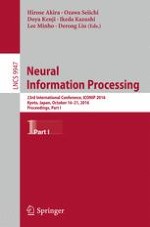2016 | OriginalPaper | Buchkapitel
Learning Latent Features with Infinite Non-negative Binary Matrix Tri-factorization
verfasst von : Xi Yang, Kaizhu Huang, Rui Zhang, Amir Hussain
Erschienen in: Neural Information Processing
Aktivieren Sie unsere intelligente Suche, um passende Fachinhalte oder Patente zu finden.
Wählen Sie Textabschnitte aus um mit Künstlicher Intelligenz passenden Patente zu finden. powered by
Markieren Sie Textabschnitte, um KI-gestützt weitere passende Inhalte zu finden. powered by
